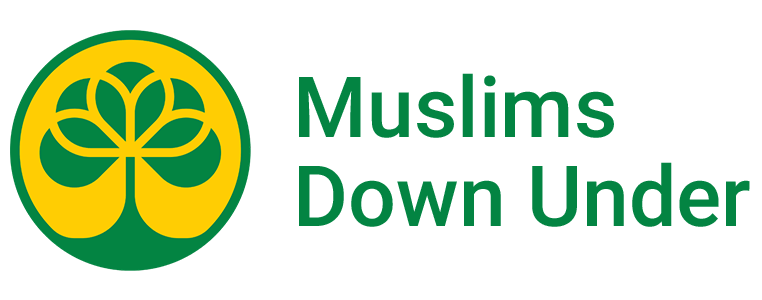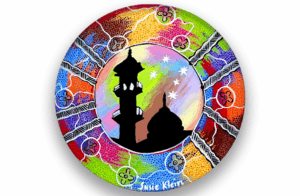You’re a Muslim, but you have questions about Islam.
We all do; Muslims are actually advised to always be on a path of learning.
Increasing your knowledge and understanding more about your faith is a sign that your spiritual journey is progressing.
A number of Religious Ministers are affiliated with Muslims Down Under here in Australia. They can help you learn more about Islam and the beliefs of a Muslim. To find out the contact details for your local Minister click here. Alternatively, if you would like to speak to one of our friendly volunteers over a coffee and get in touch with us, click here.
What is Islam?
The word Islam literally means ‘peace and submission. This means that one can attain peace through the surrender of one’s will to the Will of Allah. One who so submits and follows the laws of Islam is called a Muslim. Islam is the final complete religion, a source of guidance for the whole of mankind for all time to come.
The religion of Islam was revealed over 1400 years ago, to Prophet Muhammad (peace be upon him) through revelations from Almighty Allah. These revelations are compiled in the holy book of Islam, the Holy Quran.
The Holy Quran
The Holy Quran is the Word of Allah and was revealed to Prophet Muhammad (peace be upon him) over a period of 23 years. The Holy Quran is written in Arabic – the very language in which it was revealed. According to Islam, the Holy Quran is the direct word of God.
The Holy Quran consists of 30 parts and has 114 chapters. It contains a vast array of teachings and is a comprehensive code of conduct for mankind. Despite being over 1400 years old the Quranic text has remained intact and unchanged – as promised in the Holy Quran by Allah Himself. The translation of the Holy Quran is now also available in more than 70 languages including English.
The Pillars of Islam
The five pillars of Islam represent the principle of acts of worship. To practice the faith of Islam, Muslims are obligated to observe these acts of worship throughout their lives.
- Declaration of Faith
This is the first and foremost pillar of Islam and every other belief flows from it. A believer declares the acceptance of Islam by reciting:
“Ash-hado an-la ilaha ilAllaho wa ash-hado anna Muhammadan abdohu wa rasoolohu”
I bear witness that there is no god but Allah and I bear witness that Muhammad is His servant and His messenger.
- Prayer
Prayer is the basic and most important means by which man communicates with Allah. The act of prayer allows Muslims to establish a relationship with their Creator, bringing solace and comfort to the human mind and soul, lifting them up from a lowly state to unsurpassed heights.
The most important form of prayer in Islam is the salaat. Salaat has been prescribed five times a day, with set times for each prayer. Adherence to salaat with all its prescribed rituals is the most repeated injunction of the Holy Qur’an.
In addition to salaat which is compulsory for believers, Muslims may offer voluntary prayers. Islam also provides prayers for every need and occasion. Another form of prayer is the remembrance of Allah throughout the day. To remember Allah and ponder over His attributes brings one nearer to Him. In addition, a Muslim may pray silently to Allah at any time.
- Fasting during Ramadan
The third act of worship in Islam is fasting during the Islamic month of Ramadhan. All able, adult Muslims are required to fast during this holy month which occurs once a year. To fast is to abstain from food, drink, smoking, and conjugal relations from dawn to sunset. By fasting, Muslims can purify themselves spiritually and physically. Sacrificing physical needs increases a Muslim’s awareness of the suffering of the poor and needy.
- Zakaat (Wealth Tax)
Zakaat is the fourth pillar of Islam, which can more appropriately be called the purification of wealth. It is a kind of tax that requires a Muslim to give up a certain amount of their idol wealth (2% rate on a yearly basis) for the upkeep of the poor and those who have no earning capacity; for the destitute; for travelers in need; for those serving in the way of Islam, for those fighting in the way of Allah; for slaves to buy their freedom; and for benevolent works. The amount varies according to the type of property owned. The tax can be levied on land, livestock, and liquid assets (gold, silver, stocks, bonds, etc.).
- Hajj (Pilgrimage)
Hajj, the fifth pillar of Islam, is the pilgrimage to Mecca which a Muslim who is able-bodied and has the means, is required to perform at least once in their lifetime. It is an elaborate series of religious rites which extend over several days for their accomplishment, performed at the Holy Kaabah in Mecca (Arabia) and other special holy sites. The central feature of this pilgrimage is the Kaabah, which Muslims believe to be the first house built to worship One God.
The Articles of Faith
These are the six fundamental principles of faith that form the basis for a Muslim’s belief in Islam.
- To believe in the Unity of Allah
To acknowledge the unity and oneness of Almighty Allah form the fundamental basic principle of the teachings of Islam. To declare “There is no God but Allah and Muhammad (peace be upon him) as His messenger” is the basic doctrine of Islam.
- To believe in all His angels
Islam requires belief in angels. They are spiritual beings created by Allah to obey Him and carry out His commandments. Unlike man, angels have no free will and cannot act independently. They control the forces of nature by Allah’s command. Also by Allah’s command angels serve as intermediaries in carrying out His will. In this sense, they are also referred to as messengers of Allah.
- To believe in the holy scriptures
Muslims believe that Allah revealed His laws in stages to mankind through His prophets. They believe in and accept the authentic holy scriptures that these prophets brought to mankind. These include the Torah of Moses (peace be on him), the Psalms of David (peace be on him), the Gospel of Jesus (peace be on him), and other sacred scriptures of all other messengers of Allah. However, Muslims believe that all these revelations were limited to a specific time and people and are not preserved in their original purity, and have been subject to distortions.
All holy scriptures culminated in and were perfected in the Holy Qur’an (just as all religion was perfected in Islam).
- To believe in the prophets
The Holy Qur’an states that Allah raised up prophets among the people of every nation, sending Divine messages and warnings through these holy men. All of God’s prophets or messengers are believed in and revered by Muslims.
Muslims are directed to make no distinction among any prophet of God and to accept them all. However, just as Muslims believe that the Holy Qur’an was sent to all mankind, encompassing the teachings of earlier scriptures, Muslims also believe that the Holy Prophet Muhammad (peace and blessings of Allah be on him) is the greatest and the Seal of all the prophets, having been sent not to just one nation but to all of mankind.
- To believe in the Day of Judgment
One of the most emphasised beliefs in the Holy Qur’an is the belief in the Day of Judgment. Islam teaches that physical death is not the end of man’s existence, instead, it is the door to a higher form of life that can bring one closer to Allah, depending on one’s deeds in this life. According to the Holy Qur’an, on the Day of Judgement, this entire universe will come to an end, and the dead will be resurrected. Their deeds will be judged and they will be rewarded accordingly. Those with good records will merit Heaven, while those with bad deeds will be punished in Hell. No intercession will be accepted, each soul will be rewarded according to what it earns. However, Hell is a temporary condition and eventually, its inhabitants will leave.
- To believe in Divine Decree
Muslims believe that Divine Decree controls the eventual outcome of all actions in this universe. It is the law or measure of a thing with regard to its growth and development. Within the boundaries of the Divine Decree, man is given free will.
For more information about Islam, visit our sister site: www.TrueIslam.com.au


